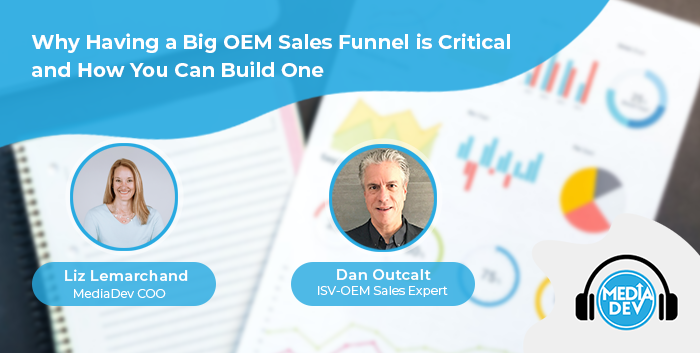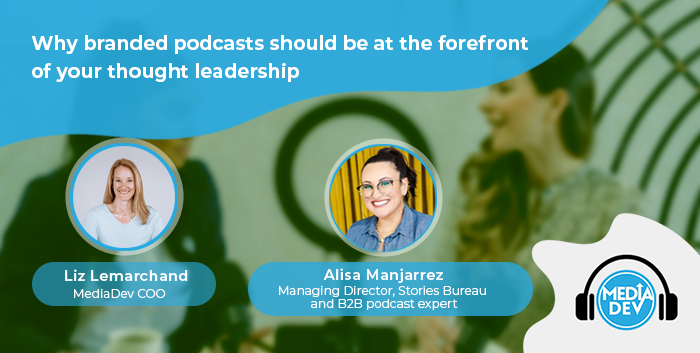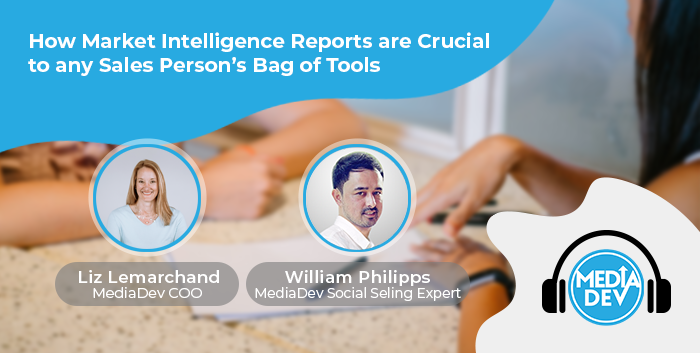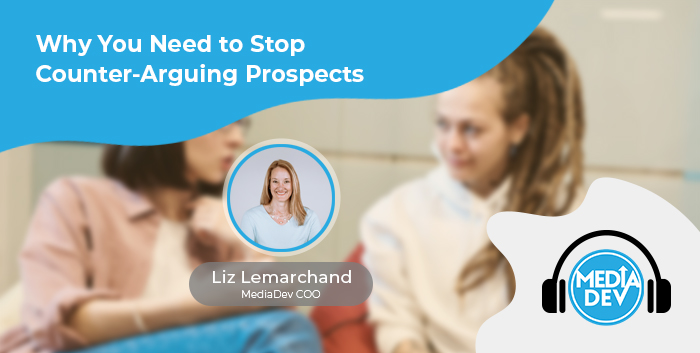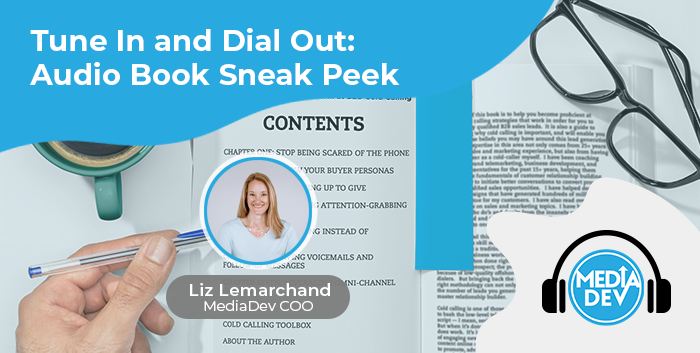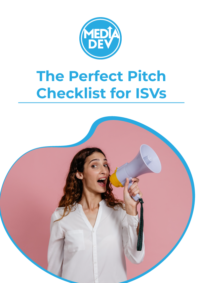Liz talks with Ryan Sorley, CEO of DoubleCheck Research, about the value of understanding how your customers are won or lost, and how it helps improve your sales process.
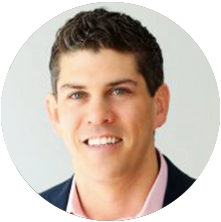 In this interview, Ryan explains what insights his clients are hoping to gain when they conduct win-loss research, and how those insights can help shape existing sales processes. He also walks us through how such interviews are done, and what the necessary steps your company needs to go through in order to get started with a win-loss program.
In this interview, Ryan explains what insights his clients are hoping to gain when they conduct win-loss research, and how those insights can help shape existing sales processes. He also walks us through how such interviews are done, and what the necessary steps your company needs to go through in order to get started with a win-loss program.
Ryan Sorley is the CEO, managing partner, and founder of DoubleCheck Research, a win-loss analysis provider that designs and executes programs for companies that want to create customer-centric solutions and experiences that are more meaningful, well-aligned, and mutually beneficial.
Ryan focuses on improving his client companies’ methodologies to achieve higher conversion rates, competitive advantage, growth, and market share. He’s no stranger to process improvement, having more than 15 years in the research and advisory space working with leading retail and manufacturing companies. He also served important roles with research firms Gartner, Forester, and AMR Research.
Listen to the episode on Apple Podcast, Google Podcasts, Spotify, Breaker, Pocket casts, RadioPublic, or Anchor.
SHOW NOTES
What insight clients are hoping to gain when conducting win-loss research? [01:40]
Why win-loss interviews are important and how were clients helped to improve their sales processes because of it? [03:49]
What are the necessary steps for a company to get started if they want to implement win-loss interviews? [08:06]
Why analyzing the wins is just as important as analyzing the losses? [14:36]
Are win-loss interviews only for large enterprise companies or can smaller-sized businesses also benefit from conducting them? [16:01]
Have any of your clients used the results to make changes to their marketing strategies? [18:04]
What is one of the main benefits clients get out of conducting win-loss interviews? [19:51]
Is culture ever a consideration when designing the questions to ask prospects? [21:05]
Why is it better to outsource win-loss interviews than doing it in-house? [22:18]
What is one of the biggest factors why somebody chooses one solution over another? [25:40]
If you’ve enjoyed this episode, please subscribe via Apple Podcast | Google Podcasts | Spotify | Anchor to automatically get the next ones!
Thanks for Listening Today!
Share it with someone you believe will also benefit from listening to it. Use the share buttons below! They’ll thank you for it.
TRANSCRIPT
Liz Lemarchand: How is it that innovative software solutions have the ability to change the world yet they don’t sell themselves? How is it that I know my target market but I’m not able to generate enough sales opportunities? How do I even get started to create visibility for my brand when I’m not an expert In marketing, that is the question and this podcast will give you the answer. Welcome to simplified software marketing needs simple.
OK, so we should be live. I am here with Ryan Sorley who is the CEO and founder of Double check research. Hi Ryan.
Ryan Sorley: Hi Liz, how are you?
Liz Lemarchand: Good thanks, thanks for joining us today. So maybe you could tell us a little bit about yourself so that our audience can get to know you a little bit and learn more about DoubleCheck Research.
Ryan Sorley: Sure, so my background is in research, having worked for companies such as Gartner and Forrester, a company called AMR Research over the years, and I guess I would call myself a student of B2B tech buyers working with DoubleCheck over the past four and a half years, we’ve really as an organization, been able to hone our knowledge and understanding of the B2B buying cycle and what buyers are looking for day in and day out as it relates to technology partnerships as well as vision, needs, solutions, alignment.
Liz Lemarchand: Great, so, what insight are your clients hoping to gain when they hire you?
Ryan Sorley: Sure, so there’s really four primary buckets of insight that our clients are looking for. The first one is related to product marketing, so a lot of organizations that we work with, their relationships really start in product marketing, and they’re looking for buyer insight real-time to help understand how to modify their go-to market strategy, their messaging branding, things of that nature.
The second group or bucket is product management, so the product managers of course owned the road map for this solution, and they’re looking to understand the impact of their offering on the marketplace, where there might be product gaps where they’re losing to competitors, what the needs of their clients might be looking forward into the future so really understanding what that road map should look like.
The third bucket is related, but it’s competitive intelligence. So, a lot of our work focuses in on asking buyers, your buyers who that who else they looked at, what their experience was like with those different solution providers, how they felt about their offering, how they felt about their sales approach, their reputation, things of that nature. So using that information for battle cards in helping to educate their sales team on the areas of opportunity to probe during the sales process as well as to focus in on as it relates your strains to differentiate from the marketplace.
Also related is the 4th bucket, which is sales enablement. So a lot of the work we do really helped to bring to light how the sales team is operating out in the field. Are they aligning their messaging and approach to the sales methodology that you’ve put in place within your organization? Are they effective? Are they responsive? Are they authentic? Are they transparent? So really helping to understand how the sales team is doing and then make any sort of changes that might be needed to make them that much more efficient and effective.
Liz Lemarchand: Great, so why are win-loss interviews important and how have you helped your clients improve their sales processes because of that?
Ryan Sorley: So let’s see, the win-loss interviews are important for a number of different reasons that I had had just relayed in the previous question, but really understanding the whitespace, so to speak, a lot of organizations get a little bit of information from deals that were won or lost about why they made the decisions that they did, but oftentimes there’s a lot of white space and unreliable information maybe that comes from the sales team. Maybe a reason code was put into the CRM so really being able to fill in those gaps is important. And how we’ve helped clients, you know, we focus in different areas within the interview we look at business drivers, so really helping them understand why the organization was looking for a solution in the 1st place. We dig into areas such as selection criteria. So what was really important to them, as they were looking to solve a problem or invest in innovation within their organizations, influencers, you know where do they go for advice during the process? So win-loss interviews really help an organization understand or they’re going to a traditional research firm or their peer community. What watering holes are they frequenting to learn about the space and ultimately build their target list their vendor target list.
Another area is related to buying process, so in decision-making process you know, What did the committee look like? What was the process that they bring people in for demos? Was there a client reference process who ultimately made the decision? What were the one or two different things that led to a win or a loss ultimately? A lot of information within a win-loss interview could be focused on the strengths and weaknesses of your organization overall or of your solution, and then again competition and sales performance. And I think you asked some specific questions about like how we’ve helped companies in those different areas. And I think that there’s a number of different examples that we can point to and I think one of those areas is we have heard stories of our clients getting headcount for specific areas that came up within the research that we conducted for them. So I’ve one client who was collecting we’re collecting information about pricing strategy and how their pricing strategy was not strong and well-received in the marketplace. So that led to a new hire of a pricing director to help lead the effort for that particular organization. We have another client who time and time again was hearing about this product gap that they had. And that information was being relayed to their C-level executives on a regular basis, and that led to them acquiring another company to help build that product gap to make them more competitive in the marketplace. And we have another client who used the information to put together a competitive campaign. They were hearing a lot about this one particular company who is building steam against them and they used the information that we collected to get budget and resources aligned to a campaign against this particular competitor in a particular quarter, and then another example I’ll use just a final example, ’cause there’s tons of them is we had heard about one client was having problems in the interviews in one particular area of their solution and area that they thought they were super strong. But apparently, the buyers felt they were weak so they took that information. They use it for sales enablement activities to help the sales team really be able to articulate their strengths in this particular area so that ultimately the messaging out in the marketplace was stronger and they really invested in resort marketing resources to help prop them up in this particular space, so it wasn’t that they were weak in that area, it was that the messaging and the approach to the marketplace was not as strong as it could have been, so that’s just a handful of different examples.
Liz Lemarchand: Wow, sounds super interesting great. So what are the necessary steps for a company to get started if they want to implement win-loss interviews?
Ryan Sorley: Yeah, there’s a lot of different things that an organization could do, and we have seen that most organizations are at one stage of maturity as it relates to win-loss programs. Most organizations are kind of immature in such a way that they’re, depending on their sales team to conduct sporadic calls with buyers who they’ve recently lost deals to, or one deals with. So I guess the first step is really to as an organization come together, take the functional areas that I had mentioned earlier, product marketing, product management, competitive intelligence sales leadership, bring them together, and ask them you know what? What would you like to see out of a data collection process of this type? What questions would you like answered if we were to put together kind of an interview guide or an online survey? What would you like to see? And by doing that, you’re able to really get a group of questions that hit home to the important stakeholders within your organization. You also get them to step towards you as far as the program is concerned and have the feeling of ownership because they’ve contributed. So there’s a buy-in element that happens at that step as well.
So that’s kind of the first step is get that consensus agreement that this is something that the organization wants to do, and make sure to get input from important stakeholders within the key functional areas.
The second thing that we would recommend that you do is with that feedback. Build an interview guide. Take the feedback that they’ve provided, write up an interview guide, build an online survey I could be using any survey tool really to put together a series of questions that might be a little bit more tactical in nature. Recirculate those tools back to the stakeholders. Ask them if you feel they feel you’ve captured what it is that they shared with you and get their feedback on the draft, and then ultimately finalize it.
So that’s the next step is kind of coming together on a common interview guide, an online survey based on the stakeholder input. The third piece is looking at your stack, so whether you’re using a SurveyMonkey or Qualtrics or a survey gizmo for your online survey data collection efforts, you know you probably have one of those, as most companies do, the next piece is figure out who you’re going to use to record the calls. A lot of whether it’s Skype or Gotomeeting, or any number of different conference bridge capabilities or providers, who are you going to use?
Make sure that you’re going to be recording those calls, then from a transcription perspective, make sure you’re lined up to. I have a transcriber and that transcriber needs to be one who can handle different languages right? If you’re conducting this. Research around the world you want to make sure that in certain countries you have local language speakers conducting the interviews ’cause they ultimately get more out of those particular discussions. So whoever you use from a transcription perspective has to be equipped to be able to handle those nuances, and then the third is to use those tools to centralized your data collection efforts.
So if you’re using an interview guide in an online survey, build them together within your SurveyMonkey or Surveygizmo or Qualtrics. And as you’re conducting the interviews and recording and transcribe, seeing them take that content and put it into your central database, have you interview questions within your survey tools so that you can keep everything in one place and you can centralize it and then you can analyze it over time you can look at question number one and see what the responses were to that question throughout 100 interviews, so having that central repository is important as well.
The next area is to really figure out how you’re going to qualify your targets, you know, which companies are you going to focus for interviews, which focus? Which companies might you focus for just online surveys, but really coming up with a group of targets that make sense. You know we recommend that you look at deals that were recent wins or losses within the last 90 days. It’s important to get to them at that point of signature or as close to it as possible before they’ve kind of gotten deep into the implementation so that their opinion hasn’t really changed all that much. You want to look for competitive deals, if competitive is important to you. You want to look for deals that are late stage. So the more time a buyer has spent evaluating your offering, the more they’re going to share with you. So those companies that have gone through your funnel have gone through a demo, a client reference call met with salespeople a number of times we’ll have more to share than somebody who you had a quick qualifying call with and then you never spoke with them again. You want sales participation in this process. You want them to approve the nominations or the companies that you’re targeting because you want them to feel like they’re a partner in this process that you’re not doing it to them, but with them. And they also help point you towards the right interviewees, so whoever it was that with their primary contact, it might not be the most senior level person or lowest level person they’ll know who the person is that can provide the most content in context, and then the 5th tip here is around building a strong communication plan.
So once you’ve decided to do this, you know all the steps that I had mentioned earlier are important, but you really need that head of sales to announce the program to the sales team and let them know that this is happening and what the benefits are of such a program to them, what they’re going to get out of it. And then you also want to build a communication plan that you can use with your sales team to reach out to the targets. The people that you’re targeting for interviews and you want to assign somebody within your organization to kind of own this process. But in the outreach process, own the interviews, things of that nature, unless you want to outsource it to a third party.
So those are the things that I would recommend you consider when you’re building a plan building a program.
Liz Lemarchand: And why are analyzing the wins just as important as analyzing the losses?
Ryan Sorley: So a lot of people start these programs, and they’re focused on losses, you know, why did we lose? It hurts to lose a deal, but what they don’t realize is that each interview is a loss interview. It might be their loss or their competitor’s loss, so as it relates to their wins, competitors lost. That person will share a lot of insight into why they made the decision that they did, why they chose you over your competitors. They also provide a lot of great insight into your competitors. Why they didn’t choose them, what their experience was like, cultural fit challenges they had from a sales perspective, pricing, contract, negotiation. So once they’ve decided to partner with you, they’re all in, and they’re more than willing to share information with you that they feel can help you improve in different parts of your business, so it’s a goldmine of content. Plus you may have just lost. You may have just won the deal. There may have been just one little thing that pushed you over the edge to winning the deal and your competitor losing the deal. So all these wins are not like hit home runs, they’re oftentimes, fell balls that landed in your lap and you won the deal. So getting that insight from those discussions as to why you just barely won, it’s really important as well.
Liz Lemarchand: Yeah, that’s great. Are win-loss interviews only for large enterprise companies or can smaller-sized businesses also benefit from conducting them?
Ryan Sorley: Anybody can benefit from conducting a win-loss interview and larger small organizations are collecting this insight today. If you’re a small company, I’m sure your salespeople or your executives are conducting postmortem calls with companies who have not chosen not to work with them and are also looking at what reasons why organizations did choose them so it is happening? Uhm, as far as the formalization of the process and investing a resource internally or using a third party that also really depends on the solution that the organization. Is selling so you can have a small company selling multimillion-dollar deals. It makes sense to invest in a third party or invest in an internal resource to help support that effort. You really it’s a small investment compared to the deal size. If you’re a large company selling highly transactional products that have a low sticker value, that sometimes it’s harder for companies to kind of get their hands around. Well, why should we invest? This much money when our product only costs that much so it’s a little bit harder for those organizations to get their head around why they should do it. And in those cases, a lot of times they’ll start with an online survey. Maybe they’ll have some sort of a data collection effort there that helps them understand. Ultimately, in this high transaction world, you know what are the things that are leading to a loss or to win. But really any organization is a fit for win-loss. It’s just how much they’re willing to invest in the program and grow in different levels of maturity and benefits as it relates to formalizing a win-loss program.
Liz Lemarchand: Have any of your clients used the results to make changes to their marketing strategies?
Ryan Sorley: Absolutely yeah. Every day, really. A lot of the work that we do because it’s competitive in nature really shines a spotlight on how competitors are differentiating from them, and oftentimes have differentiator how those differentiators are coming across in kind of a negative way against the companies that we’re working with. So it’s extremely helpful for them to find out what the message in the marketplace is, what they’re up against, and how they might change their positioning, we always recommend to take the high road, not to smear your competition, but it’s always nice to know if your competition is smearing and you know, as it relates to things like demos, data sheets, where to invest in different events, you know we were finding that your buyers are gravitating towards a certain resource for information. Whether it’s a research firm, things of that nature, absolutely, loyalty programs another big area we believe wholeheartedly, that if organizations spend more time, effort, resources, and money on existing client relationships that a byproduct of that is growth, right? Because the number one influence too. A lot of these decisions is peer-to-peer discussions you know who do you use? How’s it going and that leads to companies being invited into an evaluation and ultimately it leads to wins or losses. So yes, there’s a lot of opportunities, a tremendous amount, which is why product marketing is usually the person who gets people who give us a call first because they understand the value of this type of feedback.
Liz Lemarchand: Sure, you’ve touched on this a little bit already, but what would you say is one of the main benefits that you’ve seen your clients get out of conducting win-loss interviews.
Ryan Sorley: Well, win rate improvement is the main benefit. You know there’s a direct dollar-related ROI to investing time and energy into this type of a program, so that’s typically a lead when we’re speaking to organizations who were looking to win more business. You know, that’s ultimately the place that they want to be. Unfortunately, a lot of organizations don’t have a strong frame of reference for their actual win rates. And when we bring the question up to them you know what are your win rates today and how are you looking to improve those? Sometimes they just really struggle with answering that question, so I think organizations need to be ready for these efforts they need to have some sort of a baseline metric that they’re working off of in a win rate is a great baseline metric, but understanding what your win rates are is a step that they should take, and I should have mentioned that earlier. It’s really kind of having that readiness baseline to be able to know how, how much you ultimately improve through the program.
Liz Lemarchand: Is culture ever consideration when you’re designing the questions to ask prospects?
Ryan Sorley: Yeah, absolutely. There are a lot of different communication styles and levels of professionalism that organizations are used to based on where they’re located based on the type of company they are. It could be industry-related, you know, some financial services companies or often they require a little bit more of a conservative approach. You have different countries that have different ways of doing business, so it’s important to have an interviewer who’s familiar with that, that particular country and how they do business so they know how to open up a conversation in the right way. And you know, here in in the states where we are, it’s a little bit less formal in some cases, but in other countries you know, certainly Germany, as an example, you have to, you know, start with if you have to refer to people in certain ways, and certainly that’s the same in Asiapac in other parts of the world, you have to really have someone who’s knowledgeable in that space.
Liz Lemarchand: Why is it better to outsource this activity to someone else rather than doing it in-house?
Ryan Sorley: That’s a great question. I think there’s a number of different reasons to do it. The first is that it’s kind of a monumental task to run an effective win-loss program, and when you look around your organization, you have to kind of designate it, designate somebody to own the program, and oftentimes the person you designate. It’s not their full-time job, they have other things going on which makes it very difficult to keep it going and not get that person sidetracked with other projects and priorities.
So having somebody who owns the program for you who manages it for you who’s reporting out on progress, who’s reaching out to you when things are needed, that’s really a really important part of the process. The independence is another big factor. Having a third party conduct the interview is really important because a buyer is more likely to share open and honest feedback with somebody not at, not at the vendor organization simply because there’s no fear of an emotional response to their feedback.
Liz Lemarchand: Sure, yeah.
Ryan Sorley: You know, oftentimes, they don’t want to call somebody baby ugly to their face directly, but they’ll do it to an independent third party. And then the independent third party should have a level of expertise they should have you know the right level of knowledge in the particular technology area. That or area in general that the customer is in and be familiar with the solution area and all that stuff. So having some sort of background that’s applicable to help support those interviews is quite important. As well, you also have the tools that a third party might use to help manage the program, report out to you, analyze the data, summarize the data. We as an example have editors. We have data analysts. We have market intelligence-type analysts, so there’s a lot of cooks in the kitchen to help make sure that the reports come out in a timely manner that they’re professionally complete. When you run it internally, it’s hard to do that, and often again falls to one person part-time, so it’s not as effective, so I guess the last piece is that because a third party is conducting the information and there’s an investment being made in that third party, people pay a little closer attention.
Liz Lemarchand: Makes sense, yeah?
Ryan Sorley: then somebody in-house who you know is easy to ignore. Right or bias? So, oftentimes when you go in for that executive summary quarterly presentation, now you get the C level sitting there. They’re really looking towards you for analysis of the insight collected, but they also want you to compare your findings to other companies that you work with, you know how do we compare? In this area of sales, how do we compare in this area of benefits and the third party can bring that to the table?
Liz Lemarchand: Excellent and just one last question. Kind of off the cuff. So what do you think is one of the biggest factors that you’ve come across why somebody chooses one solution over another? Is there any, you know one thing that you can kind of pinpoint? I mean, is it always price? Is it always you know good customer service.
Ryan Sorley: Yeah, you know it. It’s I I’ve kind of mentioned it a few times in different ways during this discussion, but the number one thing is a peer recommendation and you know you could invest a ton of money into your solution and into your sales team. But if you have a poor customer success team and somebody signs up with you and has a bad experience, they’re going to tell other people and those other people are not going to buy from you Versa if you have a really strong client-focused organization who’s really dedicated to providing as much value as possible and really going above and beyond the Call of Duty. Those people are going to talk about you in a really positive way, and they’re going to be your best sales assets. So I believe we believe that you know the really most important thing here is happy customers lead to growth. That’s the one big takeaway. There’s a ton of them, but that’s the one that comes up quite regularly.
Liz Lemarchand: Absolutely great. Well, Ryan. Thank you so much. Is there anything else that you want to add?
Ryan Sorley: No, you know I just I want to say that we’ve really appreciated working with your organization, helping us be able to expand our capabilities globally in different languages. You’ve been a fantastic partner. We appreciate it, so thank you.
Liz Lemarchand: thanks, Ryan.
Ryan Sorley: Thank you.
Liz Lemarchand: You just listened to simplified brought to you by MediaDev. If you have software marketing questions or need help marketing your software solution, reach out to us at contact at mediadev.com and check out other amazing assets for you on our resource library at mediadev.com.



